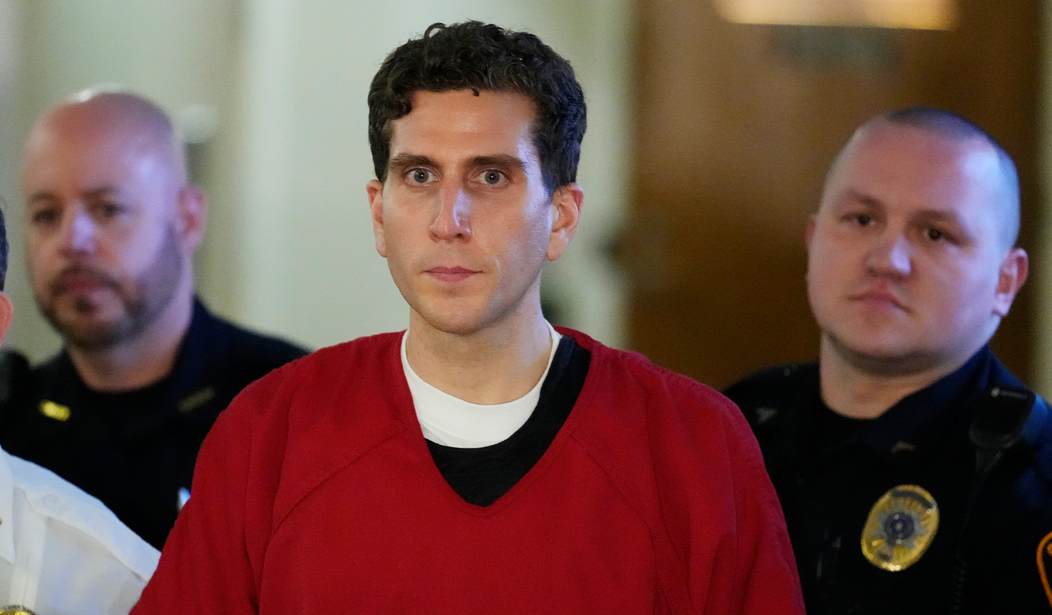Idaho quadruple murder suspect Bryan Kohberger was in court Monday to be arraigned for the brutal slayings of four University of Idaho students last November. Kohberger stood silent when asked for his plea, triggering an automatic “not guilty” plea that was entered by the judge.
The families of the victims, Kaylee Goncalves, Madison Mogen, Ethan Chapin, and Xana Kernodle, were in the courtroom, and emotions were high. The trial has been initially set for October but will surely be delayed several times before it commences. The defense attorney noted that she expects the trial to take four to six weeks.
The house where the students were murdered in the dead of night has been condemned and will be torn down soon.
Back in #Moscow, Idaho, ahead of #BryanKohberger’s arraignment. #Idaho4 pic.twitter.com/fqz5d2zmEd
— Michael Ruiz (@mikerreports) May 21, 2023
The Idaho court instituted draconian rules for today’s hearing that disallowed media cameras from streaming the hearing live. This was done at Kohberger’s previous hearings as well. There has been no official explanation for why the court would not allow live streaming of the Kohberger case so far. Media had filed a motion to be heard today about the restrictions, but the judge pushed off the media’s request to June 27th.
Recently, in the Lori Vallow trial in Idaho, the court also banned live-streaming, opting instead to release only audio footage one day after the trial was held. This keeps the public mostly in the dark since following a trial on audio is next to impossible because the disembodied voices cannot be identified. Is this an intentional move by the state of Idaho to keep the public and media out of cases of interest? It seems like it, and it shouldn’t continue. Media companies like Law and Crime and Court TV should seriously consider filing suit against the state to bar them from keeping cameras from live-streaming trials of interest.
Cameras in the courtroom are too few and far between as it is. Any new rules should be more inclusive of this technology, not less, in the interest of public fairness and transparency. Our government should never be trusted to operate behind closed doors. The rule should be that all courts should be broadcasted at all times, but we are sadly behind the times and find ourselves fighting with courts stuck in the past to open the virtual doors. There is absolutely no good argument for closed courts, even taking into consideration that sometimes minors are involved, because steps can be taken to redact names and place witnesses behind privacy screens.
Related: Nine Victims and Counting: Toe-Sucking Pedo Who Was Out on Bond Is Arrested Yet Again
The continued battle for cameras in the courtroom rages on. Another reason why courts may seem hesitant to have their inner workings broadcasted is the proliferation of non-approved news sources covering these cases. In the past, the dinosaur press could be counted on to tell whatever narrative the prosecution wanted to tell. These days, anyone with an internet connection can stream a trial and let the audience decide for themselves if they think the prosecution is fair or not. Lately, there have been several high-profile trials where the public came away with a largely unfavorable opinion of the state actors. Is this why courts are cracking down on live-streaming? If so, it’s a very bad excuse.










Join the conversation as a VIP Member